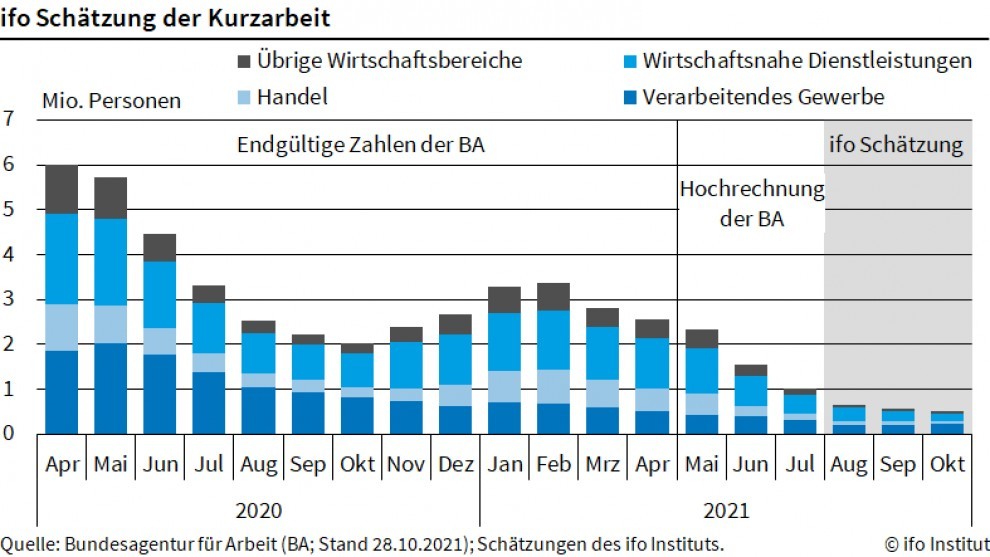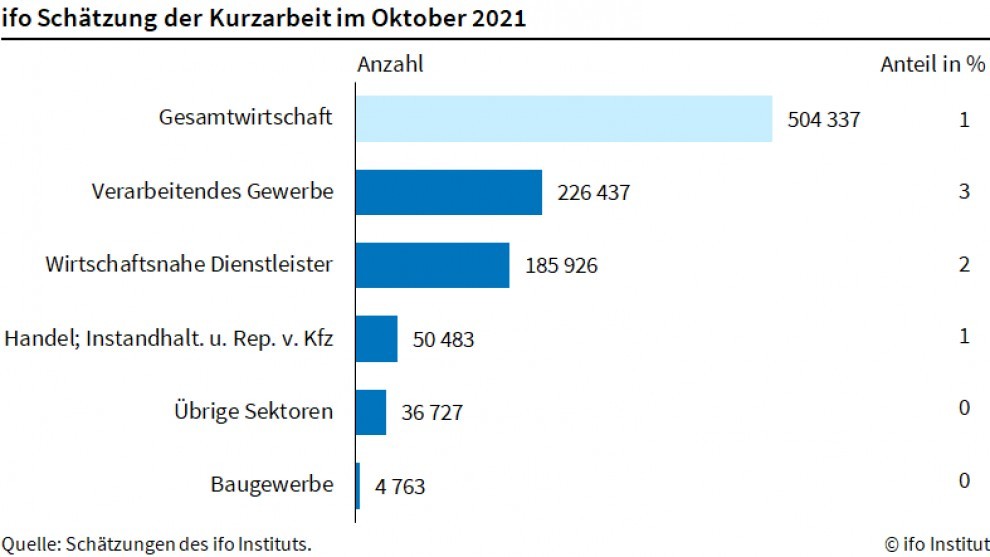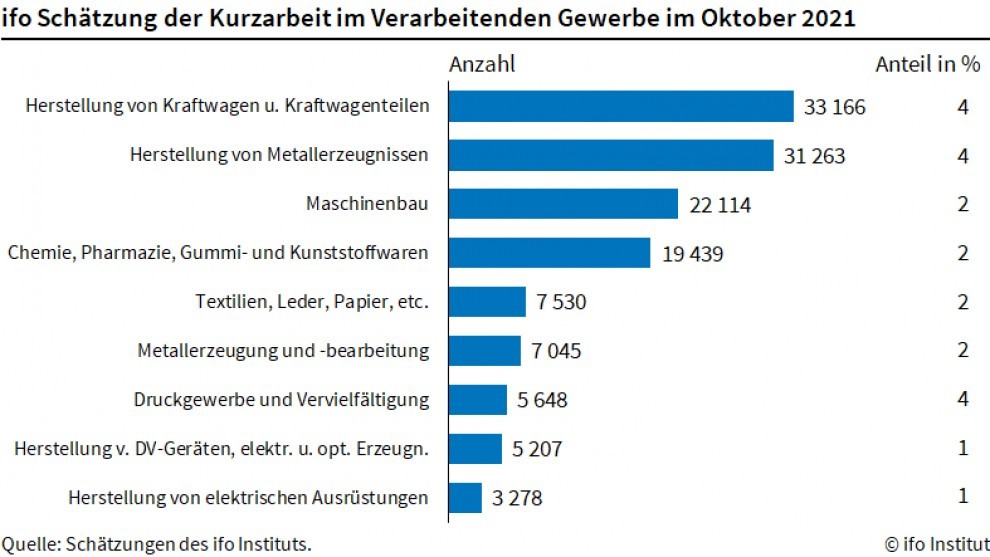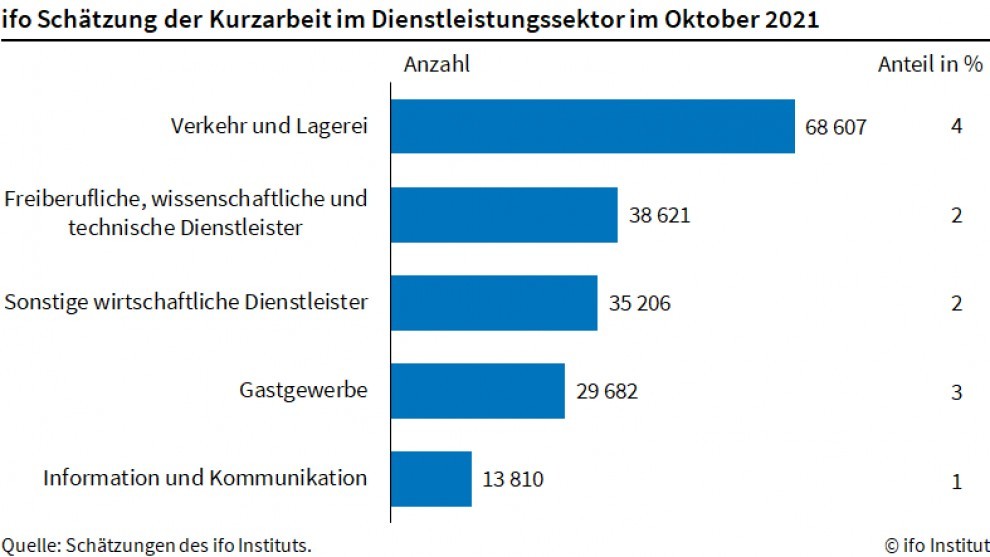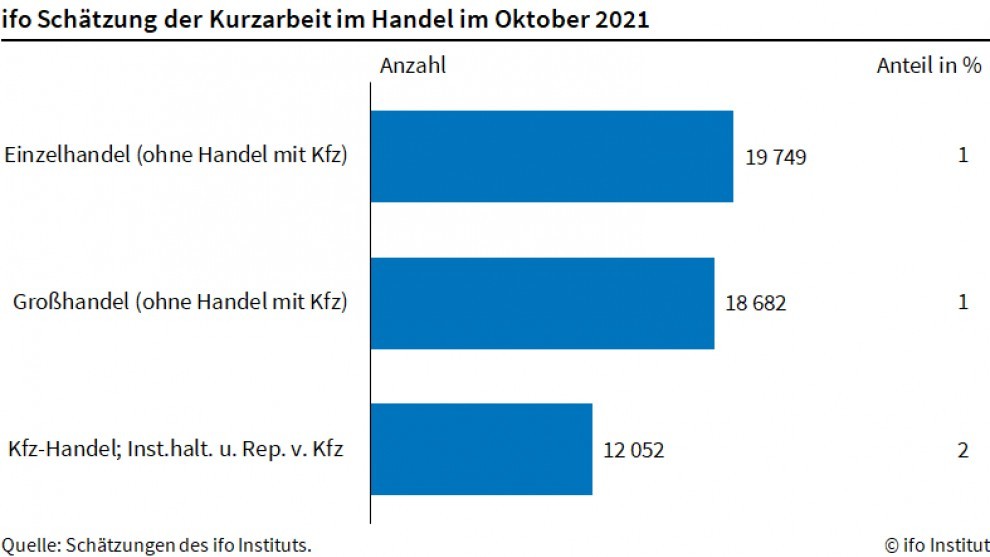The number of people on short-time work in Germany fell to 504,000 in October from 580,000* in the previous month. That is still 1.5 percent of the workforce. Against the trend, short-time work in industry increased. This is estimated by the ifo Institute on the basis of its surveys and figures from the Federal Employment Agency. In industry, the number grew by 20,000 to 226,000 employees (3.3 percent). "The bottleneck in primary products is literally choking off production. With the current order backlog, a maximum of 10,000 employees in industry should actually be on short-time work," says Timo Wollmershäuser, Head of Economic Forecasts at ifo.
Car manufacturers and their suppliers recorded increases from 27,000* to 33,000 employees (3.5 percent), manufacturers of metal products from 20,000* to 31,000 (3.8 percent) and the chemical industry from 15,000 to 19,000 (2.2 percent). Short-time work also rose slightly in the transport and storage sector, which is linked to industry, by 2,000 to 69,000 people. "Here, too, the proportion of employees is well above the overall economic average at 3.7 percent," says Stefan Sauer, survey expert at the ifo Institute. Short-time work also increased among car dealers, from 8,000* to 12,000 employees (1.8 percent).
In the hospitality industry, on the other hand, short-time work halved from 63,000* to 30,000 (2.8 percent). In wholesale, it fell from 27,000* to 19,000 (1.3 percent), in retail from 37,000* to 20,000 (0.8 percent).
Before coronavirus, the number of people on short-time work stood at 134,000 in February 2020, jumping to 2.6 million in March 2020 and reaching a record 6 million in April. This was a unique development in Germany's post-war history.
* corrected value
